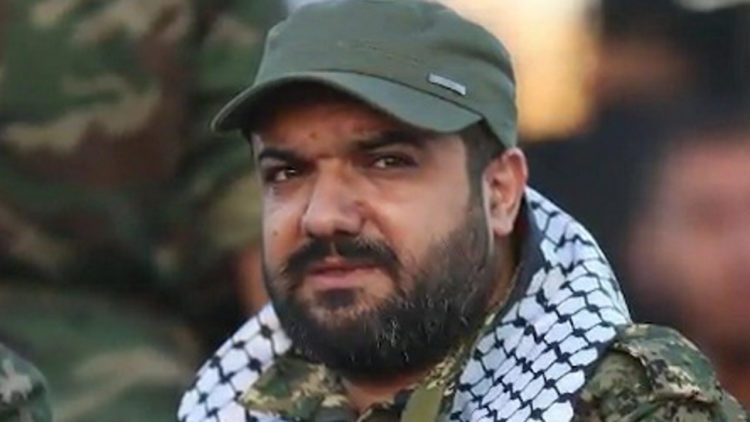The Israeli Defense Forces (IDF), finally decided enough was enough and took out Islamic Jihad leader Baha Abu al-Ata during an airstrike this week. They thus terminated the threat that more than anyone or anything else had disrupted cease-fire talks along Israel’s southern border.
While Hamas, Egypt, and Israel were trying to broker a ceasefire deal, al-Ata was actively trying to undermine it. According to Israeli news sources, Shin Bet, the Israeli security service and the IDF targeted al-Ata for assassination over two years ago. But the IDF and Prime Minister Netanyahu argued that his death would spark renewed violence in the south, which is what has now happened.
For over two days, Israel has been inundated with rockets fired from Gaza, which have nearly paralyzed the country.
Many Israelis have been questioning not whether the IDF should have targeted al-Ata, but rather the timing of it. Some of Netanyahu’s critics argue that it was a ploy aimed at scuttling the plans of his chief rival, Benny Gantz, to form a coalition government without Netanyahu’s Likud Party. However, Gantz approved of the IDF operation.
So, who was Baha Abu al-Ata? Some say he was close to the Iranians and was taking his orders from them. Not so, say IDF intelligence officials. Many of them believe that al-Ata was just acting “like an unchecked thug.” Intelligence officials believe that he only acted in a manner that would be beneficial to the Iranians in order to derail any truce talk and gain influence with Tehran as a major player on the scene.
Islamic Jihad felt the same way. They allowed him to unleash rockets and attacks on Israel because if the cease-fire with Hamas went through, the IJ, would gain nothing of consequence from it. But even they grew frustrated with his running off the rails.
Islamic Jihad was negotiating along with Hamas and Israel, earlier this year, in an attempt to ease conditions in the impoverished, surrounded country. It was during this time that al-Ata decided on his own to launch a fusillade of rockets at Tel Aviv.
Both Hamas and Islamic Jihad, in a rare display of accord, disavowed the rocket attacks, blaming them on “rebels” within the organizations. The Israelis also flipped, and instead of blaming Hamas for the escalation of violence in Gaza blamed it on al-Ata.
The Israelis, and probably even many in Hamas, saw that al-Ata was an obstacle in brokering the ceasefire. With IDF intelligence reporting that he was planning more terror attacks, he moved the needle too far and put a bullseye on his back.
Once the Israelis found out the building that he was hiding in, including the floor he was on, they made a surgical missile strike, killing al-Ata, his wife and seriously wounding two of his children. In a remarkable display of accuracy, the Israeli rocket took out the floor that al-Ata and his wife were on without damaging the rest of the building, therefore minimizing civilian casualties.
Arab citizens reported that just prior to the rocket attack, a drone was seen buzzing overhead, perhaps confirming that al-Ata was still in the building.
Already have an account? Sign In
Two ways to continue to read this article.
Subscribe
$1.99
every 4 weeks
- Unlimited access to all articles
- Support independent journalism
- Ad-free reading experience
Subscribe Now
Recurring Monthly. Cancel Anytime.
“Decapitating Palestinian Islamic Jihadist Abu al-Ata was rightful and necessary, as he was planning terror attacks [and] undermining security and Gaza stabilization efforts,” former Military Intelligence chief Amos Yadlin tweeted on Tuesday.
But Islamic Jihad answered, unleashing 200 rockets, which shut down large swaths of Israel for two days: Schools in Tel Aviv were canceled for the first time since the 1990 Gulf War. A total of 39 Israelis were wounded in the rocket attacks. A close friend, who lives in the country said that air raid sirens were going off constantly for two days. Most of the rockets were intercepted by Iron Dome.
The Israelis responded to the rocket attacks by attacking Islamic Jihad underground facilities where they store and manufacture weapons. However, none of the retaliatory airstrikes targeted Hamas.
The Israelis, fearing more attacks and terrorist infiltration of they southern border, massed armor and air units along the Gaza border to prevent any major incursions. IDF Chief of Staff Lt. Gen. Aviv Kochavi said, “We are preparing for further escalation and every scenario.”
While Hamas made the usual threats following the airstrike, they didn’t react with any attacks either.
For now, there is an uneasy lull. But with the Jewish Sabbath upon us, many in the country fear that the rockets will once again sound the alarm.
Photo: YouTube










COMMENTS